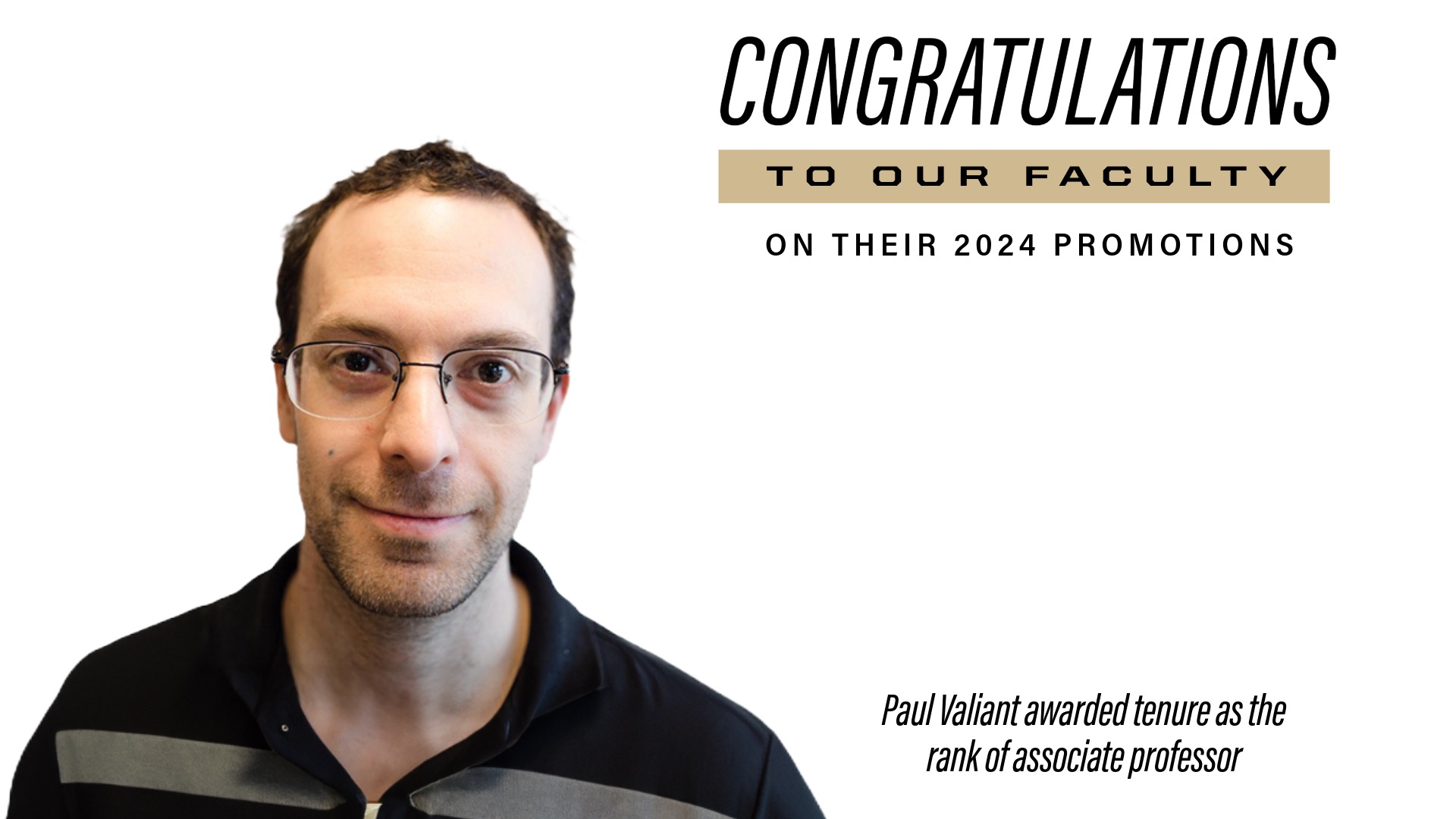Valiant receives tenure from Purdue University's Board of Trustees
04-12-2024

Associate Professor Paul Valiant was awarded tenure by Purdue University's Board of Trustees on April 5, 2024.
Congratulations to our faculty who received promotion from Purdue University's Board of Trustees.
The Purdue University Board of Trustees approved faculty promotions on April 5, 2024. The following promotions are effective with the 2024-25 academic year.
Paul Valiant was awarded tenure as the rank of associate professor. Valiant’s area of research is in algorithms, complexity, machine learning, fluid dynamics, and neuroscience. His algorithmic work concentrates on revealing obscured aspects of probability distributions and crafting instance optimal algorithms, while his machine learning research focuses on improving speed, accuracy, and data efficiency. Additionally, he explores fluid dynamics using innovative techniques like computer-aided proofs and simulations. Valiant also investigates the intersection of machine learning and human cognition, particularly examining the cerebellum's algorithmic role in the brain. Prior to joining Purdue University in 2021, he was a Von Neumann Fellow at Princeton University and was previously an assistant professor at Brown University. He completed an NSF Mathematical Sciences Postdoctoral Fellowship at University of California, Berkley in 2012. Prior to that, he completed a postdoc at Massachusetts Institute of Technology in 2009. He earned his PhD in Computer Science from MIT in 2008.
About the Department of Computer Science at Purdue University
Founded in 1962, the Department of Computer Science was created to be an innovative base of knowledge in the emerging field of computing as the first degree-awarding program in the United States. The department continues to advance the computer science industry through research. US News & Reports ranks Purdue CS #20 and #18 overall in graduate and undergraduate programs respectively, 6th in cybersecurity, 8th in software engineering, 13th in programming languages and systems, 15th in data analytics, and 18th in theory. Graduates of the program are able to solve complex and challenging problems in many fields. Our consistent success in an ever-changing landscape is reflected in the record undergraduate enrollment, increased faculty hiring, innovative research projects, and the creation of new academic programs. The increasing centrality of computer science in academic disciplines and society, and new research activities—centered around foundations and applications of artificial intelligence and machine learning, such as natural language processing, human computer interaction, vision, and robotics, as well as systems and security—are the future focus of the department. cs.purdue.edu
Writer: Emily Kinsell, emily@purdue.edu